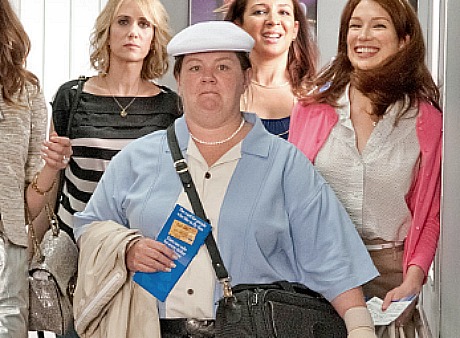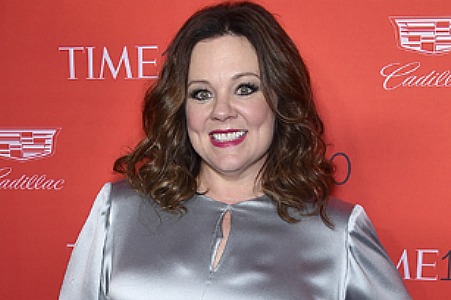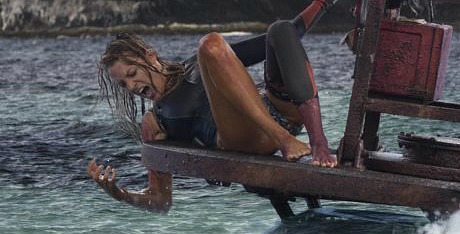Any tough-minded director knows that a shot of a guy falling or swan-diving from a tall building or cliff always means that the film is at least somewhat mediocre. It was cool when Tim Burton‘s Batman started it almost 30 years ago, but it’s been a rancid cliche for a long while now. If, on the other hand, your drama or thriller avoids a fall shot, audience members will feel less guarded and may even open themselves up a bit. This is no crackpot theory. I’ve mentioned the falling curse several times. You’d think that Ron Howard would figure some other way for the bearded guy to kill himself. And what about the possibility of beardo hitting a random tourist down below?
Day: June 23, 2016
No Getting Your Lace-Up Boots Wet
There a moment in The Free State of Jones when a ruggedly-dressed, boot-wearing Matthew McConaughey is walking through a woodsy area, and he approaches a few mid-sized puddles. Instead of stepping around them, as any sane person would, he splashes right through, soaking his boots and almost certainly his socks and feet. “What did you do that for?” I muttered from my sixth-row seat. “Are you indifferent to your feet and socks getting soaked inside your boots? If you say yes you’re a liar.”
Nobody likes wearing soaked or soggy socks inside lace-up boots. I’ve been there. It’s really uncomfortable. If you’ve slipped into a puddle or a stream the only thing to do is to put fresh ones on and air your boots out in the sun for a couple of hours.
In real life nobody walks right into puddles or splashes through shallow streams with their boots on — nobody — unless they have no choice. Guys in wartime combat situations, etc. But guys in movies do this regardless of circumstances. Because, I’m guessing, (a) it makes them look rugged and manly to slosh through but (b) stepping around puddles or crossing streams by stepping on rocks makes them look like sissies.
Shallows Faring Better With RT Critics Than Cautiously Measured, Mezzo-Mezzo Free State of Jones. But They’re Nearly Even on Metacritic.
As we speak Jaume Collet-Serra‘s The Shallows has a Rotten Tomatoes and Metacritic ratings of 76% and 56%, respectively, while Gary Ross‘s The Free State of Jones has a 53% rating on Metacritic and a 33% on RT. Which seems slightly unfair. The Shallows is a total throwaway while Jones is at least trying to be serious and substantial. It’s not a bad film — it just isn’t radical or special enough.
I agree with the complaints about Jones that some critics have brought up. Too much of a white savior movie. Decently done (realistic milieu, nice battle scenes) but feels a bit rote. It places Matthew McConaughey on too high a pedestal with one too many noble speeches. A respectable TNT-level history drama.
I saw Jones last night. This morning I told a critic friend that “it didn’t offend me as much as I was expecting, given all the pans. My general view was ‘well, this isn’t great but it’s not exactly bad either.’ It felt to me like a mezzo-mezzo thing, a dutiful historical drama that doesn’t really tarnish cinema culture or create something odious that needs to be strongly argued against or suffocated.
“More often than not I was shrugging my shoulders. I was telling myself, ‘Well, at least it’s a lot better than Ross’s Hunger Games.'”
Critic friend: “I think that’s exactly right. It’s not offensive, or even egregiously bad. It’s just…kinda dull.”
A Certain Pattern
There’s a familiar Hollywood two-step process that famous plus-sized or zaftig women have gone through. I’m thinking of Melissa McCarthy, Jennifer Hudson, Gabourey Sidibe and Kate Winslet of the mid to late ’90s (i.e, “Kate Weighs-a-lot”). Step #1 is about acceptance and self-love, step #2 is about “look at the new me!” Step #1 is “I am who I am…get used to it because I love myself and my womanhood, and all the body shamers out there can kiss my ass.” Step #2 is “okay, I did step #1 but I might be looking at a shorter life span if I don’t exercise more and watch my diet. Plus I want to be around when my kids grow up.”

Melissa McCarthy in 2011’s Bridesmaids.

Shot sometime earlier this year or in late ’15.
Today’s McCarthy looks seriously great compared to the woman she was in Bridesmaids. Hudson was step #1 when she was doing press for Dreamgirls eight years ago, but she’s blown that off and then some. Sidibe has also cut down on whatever she was doing that made her morbidly obese when she filmed Precious. Sooner or later Amy Schumer, who embraces the step #1 mindset when she talks to the press about her zaftig-ness, will follow in their path. Ditto Lena Dunham. You can be a step #1 practitioner from your 20s to mid 30s, but you have to cut that shit out as you approach your 40s.
Shark Tale With A Cheap Streak
Jaume Collet-Serra‘s The Shallows is relatively inoffensive for the first…what, 25 minutes? Lulling, I mean. A tropical Mexican (actually Australian) surfside setting. Brief glimpses of Blake Lively‘s tanned bikini bod. A tranquil, crescent-shaped cove under radiant blue skies. Hefty surfer swells rolling in.

And then the dumb shark tale begins, and it gradually gets harder and harder to accept. The big ending, trust me, is ludicrous. But it’s a fairly lightweight, see-it-and-forget-about-it thing. I didn’t hate it. I just sat there and smirked. Okay, a single shock cut made me jump but that’s it.
The film pretty much rests on Blake’s shoulders, and to be fair she delivers as well as can be expected. She works it, I mean. Gives her all in conveying the fear, panic and pain. It’s the damn shark I didn’t care for, or more precisely his behavior. This is one determined predator who wants to feed, yes, but his main purpose is to eat Blake Lively. She does what she can to elude and survive, but Sharky-poo won’t quit. “I’m really after you, bikini babe with the Oakland booty…I can’t wait to sink my teeth into your flank!”
“We Lived In A Society That Made Women Feel Vulnerable”
In this American Masters clip from a 2006 segment called “Marilyn: Still Life,” Gloria Steinem talks about the doomed Marilyn Monroe and how she might have been saved by the women’s movement if she’d somehow lasted until the late ’60s or better yet the early ’70s. I can’t find the URL but I wrote something similar two or three years ago, about how Monroe might have felt less trapped or certainly more understood if she’d managed to stay afloat until the arrival of ’60s freak culture and everything that followed. Or maybe not. Monroe was so brutally abused by her mentally-unstable mother that she might never have found stability under any condition.
But living with feelings of vulnerability and putting yourself through contortions to live up to expectations of the opposite gender has never been a women-only thing. I went through a lot of this in my 20s and especially my 30s — job anxiety, creative failure, crash-and-burn love affairs, being found wanting for fickle or substantial reasons, heartbreak and anger over the constant ‘no, no, no, no, no’ of things — and a lot of it was truly hellish. The Steinem narrative is that women of her generation (reared in the ’40s and’50s, early adulthood in the ’60s and ’70s) had it much tougher than guys of that era. Maybe they did but life is never a picnic for anyone. It haunts from all sides, cradle to grave.
Four Stood Together. Okay, Five If You Count Feig.
In yet another N.Y. Times piece about Paul Feig’s Ghostbusters (Sony/Columbia, 7.15) and the sight-unseen loathing by hardore, mostly-male fanboys, Dave Itzkoff asks the four leads — Melissa McCarthy, Kristen Wiig, Kate McKinnon, Leslie Jones — to analyze the adversity.
But before I quote from it, it’s important to reiterate that while I took an instant dislike to this film based on the trailers, I’ve never said to myself “the original over-worshipped 1984 film shouldn’t be remade as a girl thing.” My reaction from the get-go has been (1) “the trailers have suggested there isn’t anything the least bit funny in this film” and (2) “I’m getting a sense that it’s CG-driven if not CG-dominated, and there’s nothing less funny than being carpet-bombed by expensive CG.”
Itzkoff: Was there a point at which you noticed that because of the film’s premise and because the leads were female, some subset of your audience was not happy?
McCarthy: You mean the crazy people?
Jones: You mean the people that don’t know that it’s a movie?
Wells interjection: In other words the proper attitude in Jones’ view should be “it’s just a movie so sit back and chill.” There are some who look at moviegoing this way, as a check-your-brain diversion. And there are many, of course, who go to movies for a kind of theme-park experience…CG, CG and more CG. But there are others who would never say movies are “just” anything. They regard theatres as churches and movies as experiences that might, if the moviegoer is lucky, deliver intensity, enhancement and even joy, even if the film in question is apparently some dumb flick about fighting ghosts. They regard movies as experiences that can potentially cleanse your soul (at least temporarily), that can deliver the kind of emotional devastation that rarely seems to happen in real life, that might even take the viewer on some kind of transcendent voyage. It would appear that Jones is not one of these people, but the Ghostbusters haters, trust me, are made of almost nothing but moviegoers like this.
